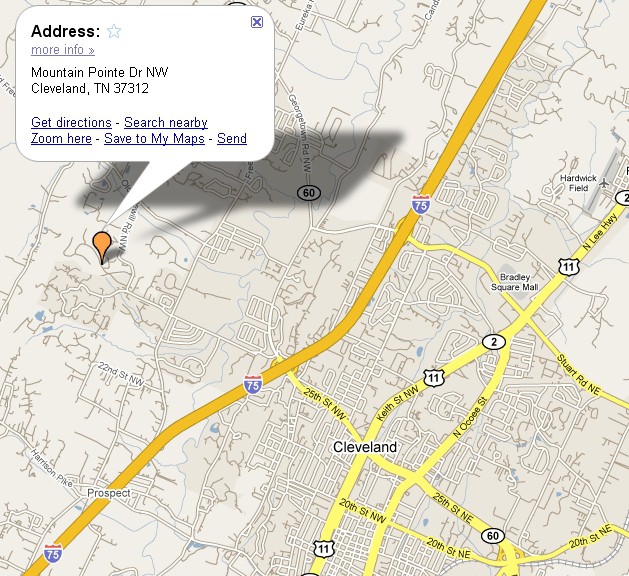 The Federal Trade Commission on Monday issued new guidelines to stem the growing trend of product and service endorsements on web-based blogs that do not disclose the cozy relationship some bloggers have with the companies they write about. For the first time, new FTC guidelines will require bloggers to confess any payments or free products or services they receive in return for their writings. Waiting and Watching, one of our regular readers, wrote asking if these guidelines would affect telecommunications-related sites like Stop the Cap!
The Federal Trade Commission on Monday issued new guidelines to stem the growing trend of product and service endorsements on web-based blogs that do not disclose the cozy relationship some bloggers have with the companies they write about. For the first time, new FTC guidelines will require bloggers to confess any payments or free products or services they receive in return for their writings. Waiting and Watching, one of our regular readers, wrote asking if these guidelines would affect telecommunications-related sites like Stop the Cap!
The revised FTC rules add new examples to illustrate the long standing principle that “material connections” (sometimes payments or free products) between advertisers and endorsers – connections that consumers would not expect – must be disclosed. These examples address what constitutes an endorsement when the message is conveyed by bloggers or other “word-of-mouth” marketers. The revised rules specify that while decisions will be reached on a case-by-case basis, the post of a blogger who receives cash or in-kind payment to review a product is considered an endorsement. Thus, bloggers who make an endorsement must disclose the material connections they share with the seller of the product or service. Likewise, if a company refers in an advertisement to the findings of a research organization that conducted research sponsored by the company, the advertisement must disclose the connection between the advertiser and the research organization. And a paid endorsement – like any other advertisement – is deceptive if it makes false or misleading claims.
Unfortunately, in the marketplace of ideas, astroturf groups which pretend to represent consumer interests that receive direct financial support from the industry they write about do not appear to be covered by the new FTC guidelines.
Several marketing firms specializing in “word of mouth” marketing or social media campaigns are paid to put free samples in the hands of bloggers who agree to write a review of the product or service (or at least write about it generally). In return, they get to keep the product at no charge. Some bloggers belong to marketing programs that pay them directly for positive reviews, mentions, or links to a product or service.
The new regulations will not punish bloggers who violate the FTC guidelines — the Commission will instead go after the marketing company, the manufacturer or provider.
Some consumer groups think that is a mistake, and that bloggers should also be accountable.
Jack Gillis, a spokesman for the Consumer Federation of America, told the Associated Press he thinks the FTC doesn’t go far enough to protect consumers from unethical bloggers.
“Consumers are increasingly dependent on the Internet for purchase information,” he said. “There’s tremendous opportunity to steer consumers to the wrong direction.”
The consumer advocacy group said lack of disclosure is a big problem in blogs. To mainly crack down on companies that give out freebies or pay bloggers won’t always solve the problem. By going after bloggers as well, “you put far more pressure on them to behave properly,” Gillis said.
For the record, Stop the Cap! receives no compensation of any kind from this industry or any other. This website is supported entirely by myself and consumer contributions made through the Paypal link on the right. Further, none of our authors are employed by or contracted with any company or provider with an interest in our issues, including Google (for the few who have made that baseless accusation in the past.)
I believe that bloggers should be held to fully disclosing their industry and/or financial connections so consumers may be fully informed about any potential conflict of interest or bias. Fake website reviews and promotions have been a perennial problem on the Internet, some written by consumers who earn money or free service whenever a new customer signs up using a special link he or she provided.
Some reviews on big sites like Amazon have been written by company employees under pseudonyms which praise their own products and trash the competition. The “word of mouth” marketing industry takes this to a new level, by leveraging social media networks to hype a product, with a direct incentive for the writer to provide glowing reviews if they want to remain on the “free goodies” mailing list. An even stronger incentive to write “pay for say” articles comes when actual cash payments are provided for reviews. Bloggers instinctively would suspect the gravy train would derail if they turned in a series of negative honest reviews, leading to the marketing company to drop them from the program.
Having full disclosure for sites engaged in public policy debates is an even better idea, especially when members of Congress routinely quote from material provided to them by what they assume are consumer groups, but are actually little more than industry-sponsored megaphones.
[flv width=”480″ height=”360″]http://www.phillipdampier.com/video/WWLP Springfield Bloggers Must Confess 10-5-09.flv[/flv]
WWLP-TV in Springfield reports on the new rules for bloggers. Note the report is inaccurate about fining bloggers — FTC enforcement will not target bloggers. (1 minute)
A Fox News video report about “blogger mommies” that advocates self-regulation is also included below.


 Subscribe
Subscribe





